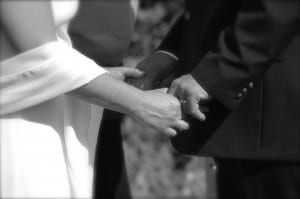Love to last a lifetime
Love to last a lifetime
Love to last a lifetime
-
Hannah
-
Hannah
You’re in a bookstore and you pick up a romance novel. You look at the cover, read the blurb and scan the first few pages. What information do you pick up immediately? One of the crucial elements that helps you decide to read the book is an idea of who the heroine is – Beautiful? Feisty? Independent? Intelligent? Unusual? And though you may not realise that it is a consideration, her age is also a factor.
How old do you expect the heroine to be?
In a young adult or new adult book, the answer is quite straightforward. In adult fiction, you find a range. But there’s a cut-off point for that range. In pure, ‘like Hollywood used to make’ romance, the heroine is usually at the younger end of the spectrum; most often younger than 40. We romance authors tend to feel the pull towards younger heroines who lack experience and for whom love and intimacy are new, exciting concepts to be explored and embraced. Of course, you can read romances with older heroines: there’s a sub-genre within women’s contemporary romance fiction (sometimes called ‘chicklit’) that features characters with their first marriage behind them and children, sometimes fully grown ones. But what of the older generation?
A recent survey, commissioned by charity Age UK and involving 2,000 participants, explored how important romance and friendships are for older people. It found that two-thirds of people over the age of 65 believe that having a romantic companion is important, but a sizeable proportion of (35 per cent) feel they are too old to date. In a Daily Telegraph article on the survey, a relationship specialist pointed out that “people should not be put off the by prospect of finding a new partner just because of their age…. growing old is no barrier to romance”. I quite agree!
What do you think about the focus in romance literature on younger characters? Of course, it’s a media-wide phenomenon. Switch on the television to watch a romance film or soap opera and you’ll see lots of youthful, attractive, slim characters – not actually a true reflection of life. I suppose when we’re in ‘romantic mode’, daydreaming and wistful, we think of those early days when we were blossoming into adults; when a mere glance from an attractive stranger from across a crowded room would make our hearts pounds; when life lay stretched out before us full of delicious potential for adventure and connection and a thousand romantic moments.
When it comes to one’s attitude to love and to life as one ages, I can think of no better approach than using time well, as advocated by Charles Dickens in Barnaby Rudge:
Father Time is not always a hard parent, and, though he tarries for none of his children, often lays his hand lightly upon those who have used him well; making them old men and women inexorably enough, but leaving their hearts and spirits young and in full vigour. With such people the grey head is but the impression of the old fellow’s hand in giving them his blessing, and every wrinkle but a notch in the quiet calendar of a well-spent life.
